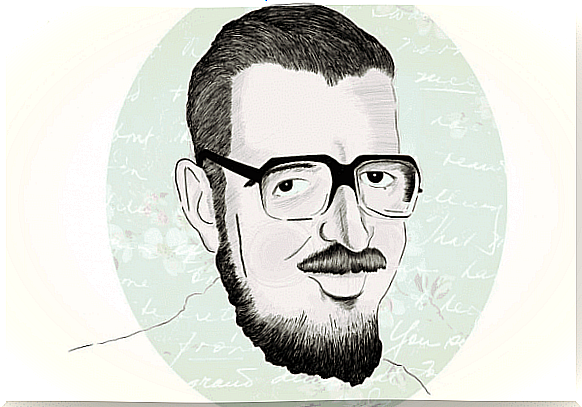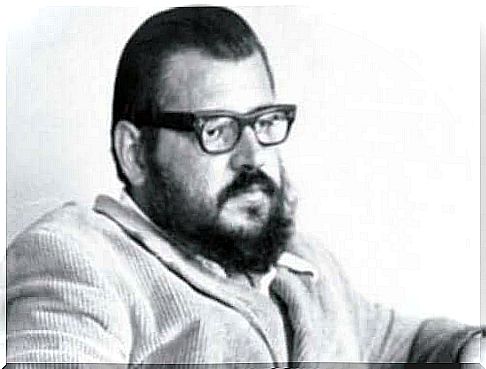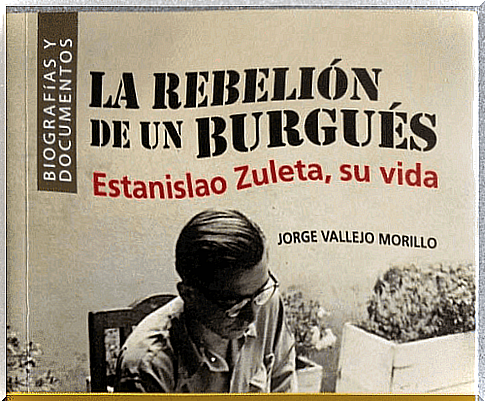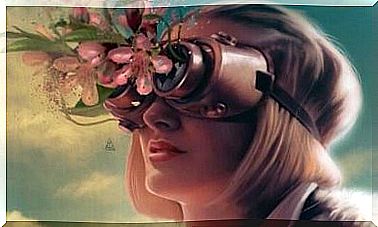Estanislao Zuleta: A Self-taught Psychoanalyst

Estanislao Zuleta is not very well known outside his home country, Colombia, despite the fact that this philosopher was a UN adviser, and had a great influence on Colombia’s cultural development. Nevertheless, his work is now being studied by younger generations.
One of the most fascinating aspects of Estanislao Zuleta and his career is the fact that he is self-taught. He rejected the idea that a formal education is necessary. He further preferred to convey knowledge through speech. Most of his work consists of transcribed lectures.
Estanislao Zuleta was interested in politics, education and power structures in Latin America. His main focus was ethics. Zuleta followed the theories of Freud and Lacan, but he also had his own theories. This in itself is a defining characteristic of psychoanalysis – they say there are as many types of psychoanalysis as there are psychoanalysts.
The beginning of Estanislao Zuleta
Zuleta was born in Medelín, Colombia in 1935. His father died in a plane crash when Estanislao was only 5 months old. The accident got a lot of media attention, when Carlos Gardel, who was an icon in the tango world, was also on the same plane.
At a young age, Estanislao decided to drop out of school. He believed that the school limited the potential instead of helping the students to develop their skills. From that moment on, he embarked on a journey of self-learning, which never ended. Ideas from ancient Greek philosophers, Nietzsche, Marx and Freud, fascinated him.

Ultimately, his foremost mentor was Fernando González, whom many called “the philosopher from somewhere else.” González was a Colombian thinker who was famous for his sharp reflections on society and because of the scandalous lifestyle he followed. He was also recognized for promoting freedom of thought and free expression. Estanislao Zuleta was his most recognized student.
Philosopher and psychoanalyst
Despite not having much formal or traditional academic teaching, Estanislao Zuleta was a university professor for most of his career. In 1980, the University of Valle gave him an honorary appointment for his research in psychology. When he received it, he gave his most famous speech, “Praise to Difficulties.”
However, he also had several personal problems. People were well aware of his excessive consumption of alcohol.
Zuleta considered reading to be a top priority when it came to education, politics and thinking. In fact, one of his most famous and beloved works is “On Reading”. In this work, he claims that it is incredibly important to actually understand what it is you are reading.
Zuleta’s work
Estanislao Zuleta visited bars and cafes. He never rejected anyone who wanted to have a conversation with him. Another essay he wrote was an excuse for conversation, and he was one of the foremost representatives of the arts. He suggested that the only ethical thing to do when exchanging ideas with someone who has different opinions and values than oneself is to try to find arguments that support the other’s argument, rather than your own. If you can not find any such arguments, you can feel free to continue thinking as you did.
He believed that psychoanalysis could change the world. Under this assumption, he made several different psychoanalytic observations of society. One of his most important works is “The Idealization of Individual and Collective Life”, in which he argues that trying to build social paradises will only end up with authoritarian societies.
One of his close friends, Jorge Vallejo, wrote a biography of Zuleta a few years after his death. It is called “La rebelión de un burgués”, or “A civil uprising” in Norwegian.

Today, there is a center dedicated solely to studying his work. Zuleta is a thinker worth reflecting on, and analyzing, despite the fact that he never became world famous.









